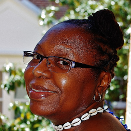 • Listen and verify: You’ll want several mentors with a mix and match of strengths such as writing, editing, business, marketing and networking… Realize that the publishing world is ever changing, so take lessons from others to use as a base for your own research. I’m not saying finding mentors is easy, but you must try. Attend conferences, workshops, join local groups, take online courses, network…. There are many affordable options out there. Get to know the publishing community.
• Listen and verify: You’ll want several mentors with a mix and match of strengths such as writing, editing, business, marketing and networking… Realize that the publishing world is ever changing, so take lessons from others to use as a base for your own research. I’m not saying finding mentors is easy, but you must try. Attend conferences, workshops, join local groups, take online courses, network…. There are many affordable options out there. Get to know the publishing community.
• Learn the craft: Great storytellers are not always great authors or even halfway decent authors. Never stop learning the craft and improving. The moment you think you know it all and there is no room for improvement is the moment you start to lose your edge. I’ve seen many seasoned authors fall prey to losing their edge because they didn’t see room for improvement in their writing.
• Don’t abuse your muse: There are those who say you must write every day. I do not believe in that philosophy. Writing fiction is creative. If you force your creative side to write daily, you can cause writer’s block—or what I affectionately call your muse going on strike. I think you should do something related to your writing most days of the week. Besides writing, you may read, take courses, attend workshops, read articles, teach others…
• One genre at a time: Know what genre you write. I’m dumbfounded how many authors say their books don’t fit a genre. That their books have something for everyone. That all readers will love their books. Sorry, but no. Am I saying your books must fit 100% into a single genre? Nope. There are cross-genre hybrids, but you should understand the rules of the genres to know how you are creating a hybrid. Once you lock in your genre (even if it’s a cross-genre hybrid) start mastering it and building your audience. After you have a nice sized audience, then branch out to include other genres in your portfolio if you’d like.
• Get an editor: The other day, a debut author told me she didn’t need an editor because she was confident in her work. Confidence is a good thing. It’s also not the editor’s job to give you confidence. Editors help you make your manuscript the best it can be. Stop making excuses. All authors need editors. Even NYT best selling authors have editors. Is it expensive? Yes. It’s an investment in your writing career and business that you can carry into future works. With each developmental edit, you should learn more about the craft.
• Know the business: Whether you go the self and/or traditional route, you need to understand the business side of things.
• Avoid the promotion trap: Promotion and marketing are important, but the best way to grow your audience is releasing outstanding books. Be smart when promoting and marketing. Know your genre, then promote to large groups of that genre. Cross promote with other authors in the genre. Stop trying to convert romance lovers to horror. Stop wasting time running after readers. You’re an author. Writing should always be your main focus.
If you found this post helpful, please use the Share buttons to spread the word about it.
Don’t have a copy of Become A Successful Author? What are you waiting for?Become A Successful Author is used in the “How To Write That Novel” course at Chicago State because it covers everything from branding to writing to editing to formatting and uploading electronic and print books to marketing and so much more. Your time is money. Look at all the time, thus money, you’ll save by ending your search for answers: Purchase Become A Successful Author for only $4.99 (eBook) or $8.99 (print) from: Amazon (US), Amazon (UK), Barnes & Noble




 The days of simply uploading a book to the various online retail sites and having people download it are over. Now, with thousands of new titles being released each week, it’s all about discoverability. How to get your book noticed in a sea of literature?
The days of simply uploading a book to the various online retail sites and having people download it are over. Now, with thousands of new titles being released each week, it’s all about discoverability. How to get your book noticed in a sea of literature?
